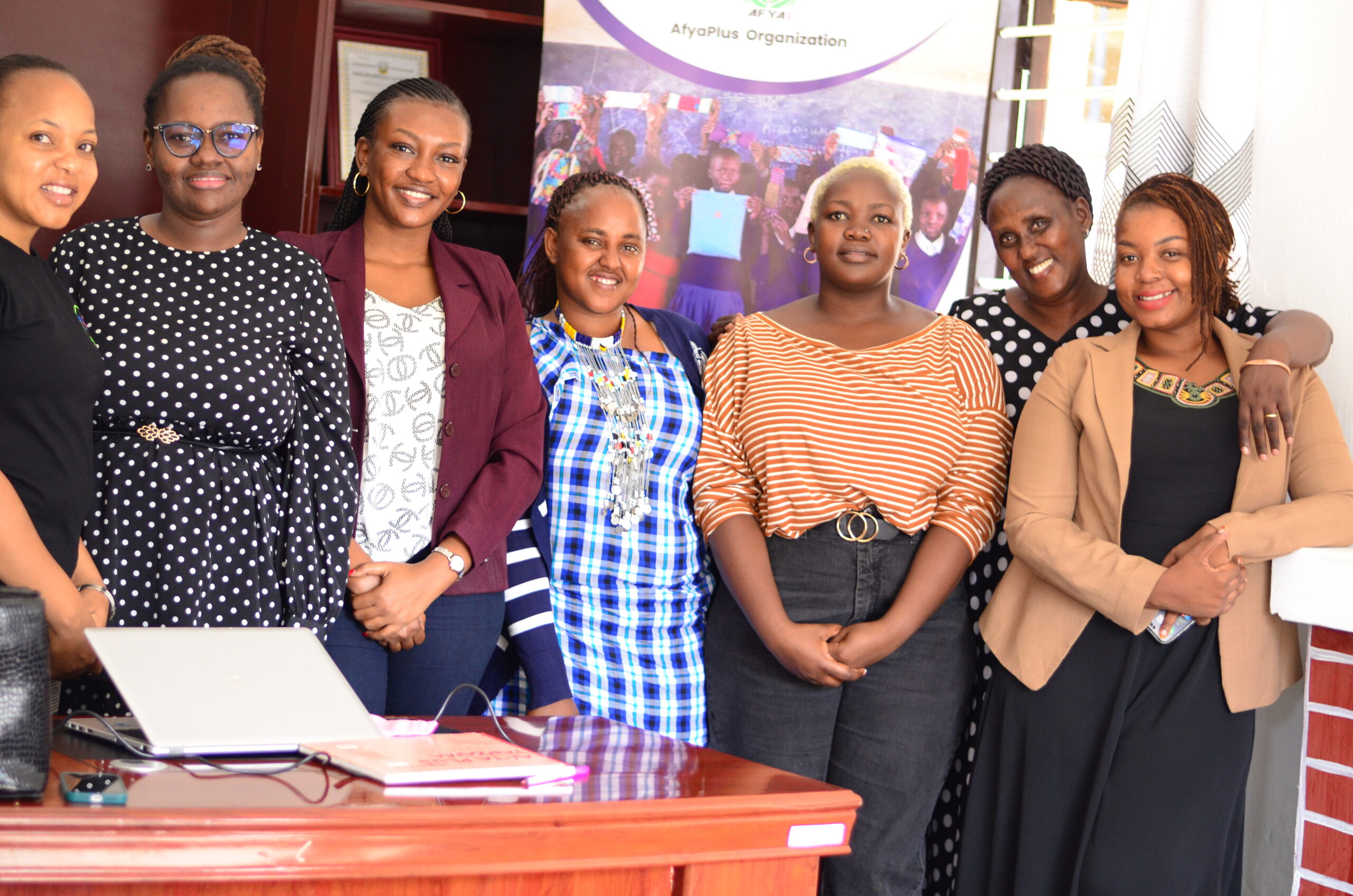From February 19 to 22, Media for Development and Advocacy, MEDEA Tanzania and other grantees of the Malala Fund had the honor of visiting the Afya Plus Tanzania organization to exchange ideas and gain insights into the Safe Pads Project. The project, implemented by Afya Plus across 50 schools in the Iringa region, strives to remove the obstacles encountered by schoolgirls during their menstrual periods.
The Safe Pad Lab Project is being implemented in 50 schools across four districts in the Iringa region, benefiting 30,600 schoolgirls. Fifteen schools have been provided safe pad labs for producing reusable sanitary pads and education, while 35 other schools receive education only.

During the visit, we had the opportunity to tour two of the 50 schools that benefited from the project. On the first day, we visited Afya Plus offices in Iringa and received an overview of the project from Suzan Yumbe, the Executive Director of Afya Plus. Later, the group visited Isimani Secondary School, where we saw the Safe Pad Lab and met with the students and their trainer, Rehema Matumla. Ms Rehema explained the process of making reusable pads and the importance of precision during production. We were impressed by the students’ dedication to making pads that they believe will solve the challenge many students face during their menstrual periods. Their goal is to produce enough pads so that every student can own five, and they are well on their way to achieving this remarkable feat.
We had the opportunity to ask questions, which were well-received by the organization and other visiting NGOs, including the Msichana Initiative, ICCAO, PWC and the KINAPA from Kitete, Manyara. Later, the group went to the Iringa Regional Commissioner’s Office, where they were presented with an overview of Afya Plus and the Safe Pad Lab Project. What we found impressive was the appreciation shown by Iringa government officials towards projects that aim to enhance the lives of students. Regional Academic Officer Mwl Yanga, in his own words, congratulated the Afya Plus organization on the triumph of the safe pad lab project. This initiative has been instrumental in improving academic outcomes in primary and secondary schools in the region. In fact, Iringa was ranked as the second-best performing region in primary education, while the secondary education national examination results propelled the overall performance to an impressive 98.8%.

Following our visit to the Regional Commissioner Offices, we proceeded to Neema Crafts, a center that empowers over 100 people with disabilities in Iringa, Tanzania by providing them with training and employment opportunities. Additionally, we toured the Iringa Boma, which serves as a bastion of the region’s culture and heritage. The Boma is one of the oldest structures in Iringa, constructed in 1900 by the German colonial regime to function as a military hospital. Visitors from both within and outside the region can take advantage of the various opportunities offered to engage with Iringa’s cultural and heritage activities.
On the second day of our visit, we visited Isimila Secondary School where we observed activities similar to what we saw at Isimani. However, we were particularly impressed by the enthusiasm of the students. The project executives also confirmed that most of the students there were skilled in using sewing machines and had quick learning abilities. The comic drawings they had created on the walls of their labs caught our attention. The purpose of these drawings was to break the taboo surrounding menstruation and create awareness about good menstrual hygiene management (MHM) and sexual reproductive health (SRH).
Later, the group visited the Isimila Stone Age Site, where we saw the Middle Pleistocene archaeological site and gained a deeper appreciation for history.

One of the valuable lessons we learned during our visit was the spirit of generosity exhibited by Afyaplus towards other NGOs. They recognized the importance of sharing their approach with others who have the same goal, rather than hoarding their knowledge. One of the impressive strategies they shared was the use of the KOBO tool to track and hold Community Based Trainers accountable for their activities, which was well-received by many. Additionally, Afyaplus willingly shared its curriculum on good Menstrual Hygiene Management and Sexual Reproductive Health, which has been used to educate 30,600 school girls from 50 schools in the Iringa region. Other organizations expressed interest in replicating this model(Making reusable pads), and Afyaplus provided guidance on how to get started, including sourcing materials, overcoming challenges, and ensuring sustainability. This demonstrated the importance of collaboration and knowledge-sharing in achieving common goals.
Finally, we would like to express our gratitude to the Malala Fund under the representation of their In-Country Representative, Ms Nuria Mshare; Afyaplus and the other organizations we met during our time there. We would also like to commend Afya Plus Tanzania for its exceptional efforts in promoting the well-being of young girls.
